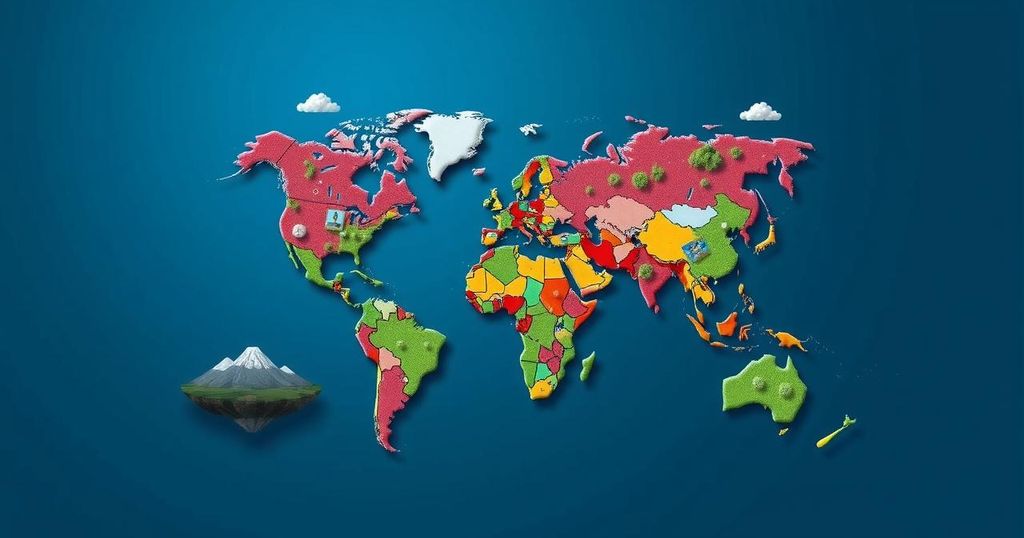The UN climate conference in Baku features various world leaders discussing their nations’ experiences with climate change, notably Pakistan and the Bahamas, amid challenges such as flooding and economic burden from disasters. The absence of major carbon emitters like China and the USA is notable. Focus areas include climate finance and the Fossil Fuel Non-Proliferation Treaty to promote renewable energy.
At the United Nations’ annual climate conference held in Baku, Azerbaijan, over twenty world leaders are expected to present their nations’ personal experiences with the adverse effects of climate change during their speeches. Prime Minister Shehbaz Sharif of Pakistan is anticipated to highlight the deadly flooding that has afflicted his nation this year, exacerbated by intensified monsoon rains attributed to climate change. The catastrophic flooding two years ago claimed the lives of more than 1,700 individuals, while the spring heatwave resulted in thousands being treated for heatstroke as temperatures soared to 47 degrees Celsius (117 degrees Fahrenheit). Bahamas Prime Minister Philip Edward Davis will also address the conference, emphasizing the economic burdens faced by his country due to climate-induced disasters, such as Hurricanes Dorian and Matthew, which have left the Bahamas in debt despite contributing minimally to warming. Greek Prime Minister Kyriakos Mitsotakis is set to discuss the severe effects of heatwaves in southern Europe, which have caused water shortages, dried lakes, and the death of wild horses. Other notable participants include leaders from Italy, Tuvalu, Russia, Morocco, Congo, and the Holy See’s Secretary of State. However, the conference is marked by the absence of significant contributors to carbon emissions, including China, the United States, India, and Indonesia, responsible for over 70% of global emissions. The U.K. Prime Minister Keir Starmer was present and announced an ambitious goal of reducing emissions by 81% from 1990 levels by 2035, a revision of the previous target of 78%, in alignment with the Paris Agreement’s objective to restrict warming to 1.5 degrees Celsius (2.7 degrees Fahrenheit). This year’s discussions mainly center on climate finance, focusing on the obligation of wealthier nations to compensate poorer countries for the damages incurred due to extreme weather events caused by climate change. The conference will also provide updates on the Fossil Fuel Non-Proliferation Treaty, aimed at curtailing fossil fuel production and promoting a transition to renewable energy, receiving endorsements from several nations and organizations.
The United Nations climate conference serves as a platform for nations worldwide to convene and address the ongoing crisis of climate change. The impacts of climate change are felt unevenly across the globe, with developing countries often bearing the brunt of weather disruptions that have been intensified by rising temperatures. Discussions around climate finance are crucial, as poorer nations advocate for support from wealthier countries responsible for the majority of historical carbon emissions. The introduction of treaties, such as the Fossil Fuel Non-Proliferation Treaty, illustrates the urgent need for concerted global action to mitigate further environmental degradation while facilitating the transition to sustainable energy sources.
In conclusion, the UN climate conference in Baku underscores the urgent need for international cooperation in addressing climate change, particularly in terms of financial assistance for vulnerable nations. While major polluters are largely absent from these critical discussions, the commitment shown by leaders like U.K. Prime Minister Keir Starmer provides a glimmer of hope. As the world faces growing climate-related challenges, the emphasis on adapting to and mitigating the impacts of climate change remains a priority for all nations.
Original Source: apnews.com






